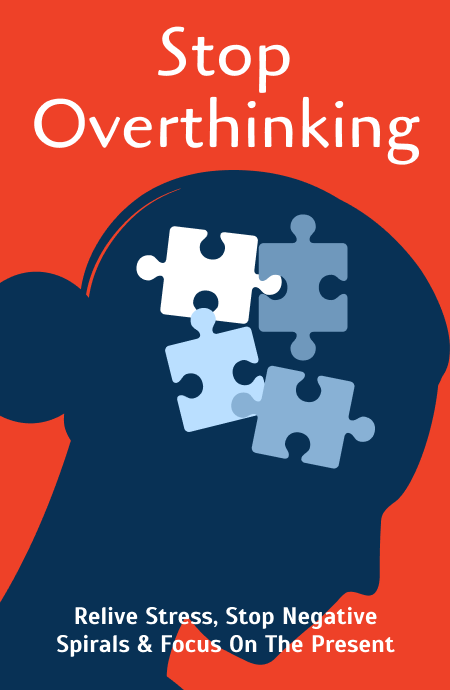Lesson 1
Overthinking is when you excessively analyse, evaluate, ruminate, and worry about certain things to a point where it starts affecting your mental health because you simply can’t stop. Classic overthinking often amplifies itself or goes round in circles forever, and thoughts seem intrusive. Overthinking is an excessively harmful mental activity, whether that activity is analysing, judging, monitoring, evaluating, controlling, or worrying.
The ability to reflect, analyse, and interrogate even our thought processes is arguably the single most defining characteristic of humankind's successes. When we overthink, we undermine the power of the brain.
There are two main sources of anxiety that lead to overthinking. The first one is we. Unfortunately, some of us are just genetically predisposed to being more anxious than others. However, genetics may not be the only factor. Anxiety is often found with other disorders, both mental like depression and physical like irritable bowel syndrome. But it’s also been observed that certain groups, such as women, experience it more, and that elements like diet, stressful lifestyles, past trauma and even culture have a part to play.
We might become habitual overthinkers because it makes us feel like we are somehow tackling the problem we're overthinking about. Because the overthinking never ends, this doesn't happen, but we still feel like we're making some progress. This turns into a vicious cycle that can be hard to escape. Another cause of anxiety is our environment. Stress and anxiety are not the same things. According to Psychologist Dr. Sarah Edelman, stress is something in the environment, external pressure on us, whereas anxiety is our internal experience of this pressure.
There are two aspects to this. First, we need to consider our immediate environments where we spend the most time, like our home and office. The way these spaces have been designed can have a huge impact on our anxiety levels. If they are cluttered, dimly lit and noisy, it’s going to make us more anxious. The second aspect is the broader experience we have in our socio-cultural setting through our interactions with the world. Something like experiencing racism or sexism might make us stressed and result in heightened anxiety. There are many negative consequences to overthinking. These include physical, mental, and even social harms that can become long-term issues. Some examples are a racing heart, dizziness, feelings of fatigue, irritability, nervousness, headaches, muscle tension, etc.
Lesson 2
Now that we've identified what overthinking is, we need to know how to combat it. There are many things you can do to de-stress and calm an anxious, overthinking mind that is simple, yet effective. The most
Unlock Knowledge with Wizdom App
Explore a world of insights and wisdom at your fingertips with the Wizdom app.
 1 Million+ App Download
1 Million+ App Download  4.9App Store Rating
4.9App Store Rating 5000+Summaries & Podcasts
5000+Summaries & Podcasts




